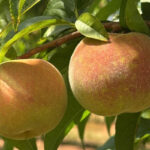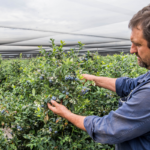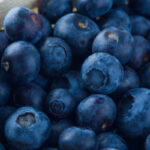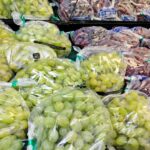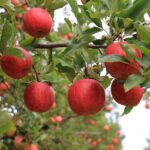Australia: Another suspected fruit fly larvae found in mainland Tasmania

Update: Since this article was published, a detection of an adult fruit fly was confirmed near the larvae site and Taiwan has banned imports of Tasmanian fruit. Click here for more.
Biosecurity Tasmania has found a second case of suspected fruit fly larvae in the state's northwest, where authorities have reportedly threatened court orders for residents who deny access in control zones.
A 15km control zone has been set up around the detection site in Spreyton near Devenport, an important apple and cherry growing area.
"Biosecurity Tasmania is investigating the discovery of another suspected fruit fly larva on fallen fruit on the infect property at Spreyton in Tasmania's north-west. The larva was found on the same property as the original detection," Biosecurity Tasmania said in an update today.
The Australian Broadcasting Corporation (ABC) reports biosecurity staff expect to visit 440 properties by the end of the week to set up traps and spray trees.
National Manager of Australia's Fruit Fly Council, Darryl Barbour, told the broadcaster of concerns the detections could impact interstate and overseas exports if the pest establishes itself.
While some specific regions of mainland Australia are classified as fruit fly-free, Tasmania is the only state declared as fruit fly-free in its entirety, putting it in the same league as countries like Chile and New Zealand for privileged export protocol agreements.
These protocols are relevant because they mean fruit doesn't need to be treated for fruit fly; a process that is not only expensive but can also impact quality or shelf life.
However, any fruit produced within the control zone will need to be treated if it is to leave the area, whether it be for movement within Tasmania, interstate or overseas.
The same applies to the control zone in the Furneaux Group of islands, where five adult fruit flies were detected on Flinders Island.
In a release, Department of Primary Industries, Parks, Water and Environment Biosecurity Tasmania General Manager Dr. Lloyd Klumpp said the detections were not unexpected following larvae being detected at the site.
“These adult male flies have been detected within a 200m zone that we had put in place around the site where larvae were detected,” Klumpp said.
"It is an area we are already targeting in our response and has not increased the size of the infected area we are focussed on," he said.
He said the detection highlighted the importance of ongoing control work at sites, as well as ongoing surveillance, so that authorities can be confident of eradication.
"To give us confidence in eradication of fruit fly we have to know that we have broken the life cycle of them," he said.

















